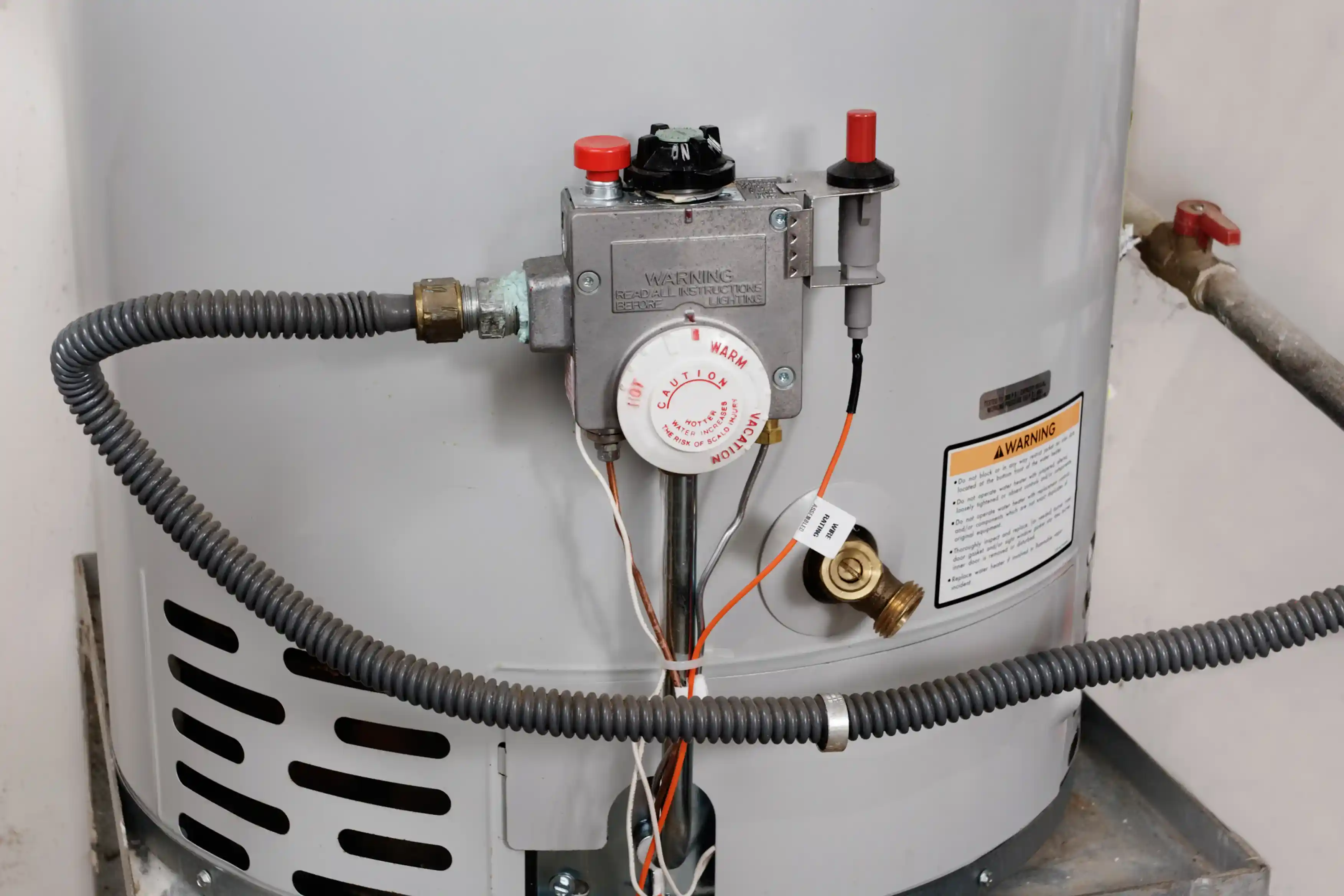Expert Water Heater Installation in Niwot, CO
Expert Water Heater Installation for Reliable Hot Water in Niwot, CO
A consistent supply of hot water is more than just a convenience; it's essential for daily comfort and hygiene. From morning showers to dishwashing and laundry, a properly functioning water heater is at the heart of a smoothly running home or business. When it comes to water heater installation, the process can be complex, requiring specialized knowledge and adherence to safety standards. Attempting a DIY installation can lead to potential hazards, inefficiencies, and costly repairs down the line. That's where professional expertise becomes invaluable, ensuring your system is installed correctly, safely, and efficiently.
Understanding the intricacies of different water heater types and the specific requirements of your property is crucial for a successful installation. Whether you’re replacing an old unit or installing a new system, making an informed decision about the right water heater and entrusting its installation to skilled professionals is paramount.

Understanding Your Water Heater Options
Choosing the right water heater is the first critical step in ensuring long-term satisfaction and energy efficiency. There are several primary types, each with unique advantages and considerations.
Conventional Tank Water Heaters
These are the most common type, storing and heating water in a large tank, usually ranging from 30 to 80 gallons. They are typically powered by natural gas, propane, or electricity.
- Advantages: Lower initial cost, reliable performance, ample hot water supply for typical household needs.
- Considerations: Takes up significant space, potential for standby heat loss, and a finite hot water supply before needing to reheat.
Tankless Water Heaters (On-Demand Water Heaters)
Tankless units heat water directly without the use of a storage tank. They provide hot water only as it's needed, by heating coils that instantly warm the water as it flows through the unit.
- Advantages: Energy efficient (no standby heat loss), endless supply of hot water, compact size, and longer lifespan.
- Considerations: Higher initial cost, can require higher BTU (British Thermal Unit) gas lines or dedicated electrical circuits, and might have a slight delay in hot water delivery.
Heat Pump Water Heaters (Hybrid Water Heaters)
These systems extract heat from the air and transfer it to the water, making them highly energy-efficient. They use electricity to move heat rather than generate it directly, making them about two to three times more efficient than conventional electric resistance water heaters.
- Advantages: Significantly lower operating costs, highly energy-efficient, and eligible for various rebates.
- Considerations: Higher initial cost, requires sufficient space for air intake and exhaust, and performs best in unconditioned spaces like basements or garages.
Making the right choice depends on various factors, including your household’s hot water demand, available space, energy source preferences, and budget. Our experts can guide you through these options, helping you select the perfect water heater for your specific needs.
The Professional Water Heater Installation Process
When you choose professional water heater installation, you're investing in safety, efficiency, and peace of mind. Our process is designed to be seamless and thorough, ensuring every detail is handled with precision.
Initial Assessment and Consultation
Our service begins with a comprehensive assessment of your current setup, hot water needs, and available space. We discuss the various water heater types and their suitability for your property, answering all your questions to help you make an informed decision. This consultation ensures the selected unit meets your demand and adheres to local codes and regulations.
Preparation and Safety Protocols
Before any physical work begins, our technicians prepare the installation area, ensuring all necessary safety precautions are in place. This includes shutting off water and power supplies, clearing obstructions, and protecting surrounding areas. We strictly adhere to all safety guidelines to prevent accidents and ensure a secure working environment.
Precise Installation Steps
Our experienced technicians meticulously handle every aspect of the installation. This involves:
- Draining and Removing the Old Unit: Safely disconnecting and removing your existing water heater, ensuring proper disposal.
- Placement and Leveling: Positioning the new unit correctly, ensuring it is level for optimal performance and drainage.
- Plumbing Connections: Expertly connecting hot and cold water lines, ensuring leak-free seals and appropriate pressure.
- Gas/Electrical Connections: For gas units, this involves safe and secure gas line connections and venting. For electric units, it includes precise electrical wiring. Tankless units often require specific gas line or electrical upgrades.
- Flue Pipe/Ventilation Installation (for Tank and Gas Tankless): Ensuring proper ventilation for combustion byproducts, which is critical for safety.
System Testing and Verification
Once the installation is complete, a rigorous testing phase begins. We fill the tank (for conventional units), check all connections for leaks, test the thermostat settings, and verify proper operation of relief valves. For tankless units, we ensure consistent hot water flow and proper ignition. Our team performs multiple checks to guarantee your new water heater is functioning perfectly and safely.
Post-Installation Guidance
After successful installation, our technicians don't just leave. We walk you through the basic operation of your new water heater, explaining key features, recommended settings, and essential maintenance tips to help you maximize its lifespan and efficiency. We also provide clear instructions on what to do in case of any initial issues.
Why Professional Installation Matters
While some might consider DIY installation, the complexities and potential risks associated with water heaters make professional service an investment in your safety and comfort.
- Safety and Compliance: Water heaters involve high voltage electricity, natural gas lines, and high water pressure. Improper installation can lead to gas leaks, electrical fires, carbon monoxide poisoning, or water damage. Professionals are trained to handle these elements safely and ensure your installation complies with all local building codes and regulations, protecting your home and family.
- Efficiency and Longevity: A correctly installed water heater operates at peak efficiency, saving you money on energy bills. Professional installation ensures optimal venting, proper sizing, and correct connections, all of which contribute to the unit's long-term performance and extended lifespan.
- Peace of Mind: Knowing that your water heater has been installed by certified and insured experts provides unparalleled peace of mind. You can trust that the work is done right the first time, backed by warranties and professional guarantees.
- Avoiding Common Pitfalls: Professionals anticipate and mitigate common installation errors, such as incorrect sizing, inadequate venting, improper pressure relief valve installation, and faulty connections, which can lead to premature failure or safety hazards.
Maximizing Your Investment: Post-Installation Care
Once your water heater is professionally installed, a little attention goes a long way in ensuring its longevity and efficient operation.
Routine Maintenance Tips:
- Annual Flushing: For tank water heaters, draining and flushing the tank annually helps remove sediment buildup, which can reduce efficiency and lifespan.
- Temperature Check: Ensure the thermostat is set to an optimal temperature (typically 120°F) to prevent scalding and conserve energy.
- Anode Rod Inspection (Tank Heaters): Inspecting and replacing the anode rod every few years can protect your tank from corrosion.
- Pressure Relief Valve Test: Periodically test the T&P (temperature and pressure) relief valve to ensure it's functioning correctly.
- Ventilation Check (Gas Heaters): Ensure the exhaust vent is clear and unobstructed.
- Tankless Descaling: For tankless units, periodic descaling (usually every 1-2 years) is necessary to remove mineral buildup and maintain efficiency.
Recognizing and Addressing Minor Issues:
- No Hot Water: Check power/gas supply and thermostat settings.
- Lukewarm Water: May indicate a failing heating element, thermostat issue, or sediment buildup.
- Leaking: Can be a sign of a loose connection, a faulty valve, or a deteriorating tank, requiring immediate attention.
- Strange Noises: Popping, rumbling, or whistling sounds often indicate sediment buildup.
- Odd Odors: A rotten egg smell can indicate bacteria in the tank, while gas smells require immediate professional intervention.
For any persistent or concerning issues, it's always best to consult with a professional to prevent further damage or safety risks.
Choosing Your Trusted Partner for Water Heater Installation
Selecting the right company for your water heater installation is crucial. Look for a provider with a proven track record of excellence, certified technicians, and a commitment to customer satisfaction. A reliable service provider should offer comprehensive consultations, transparent processes, and unwavering dedication to safety and quality.
At Limelight Services, we pride ourselves on delivering top-tier water heater installation services. Our certified and experienced technicians are equipped with the knowledge and tools to handle any installation, from conventional tanks to advanced tankless systems. We ensure every installation adheres to the highest industry standards, providing you with a reliable and efficient hot water supply.
Get Your New Water Heater Installed with Confidence
Don't compromise on the comfort and safety of your home or business. A professional water heater installation by skilled experts ensures long-term performance, energy efficiency, and peace of mind. Trust Limelight Services to provide exceptional service and a perfectly installed water heater that meets all your needs.
Contact us today to discuss your water heater installation requirements and schedule a professional consultation.

















